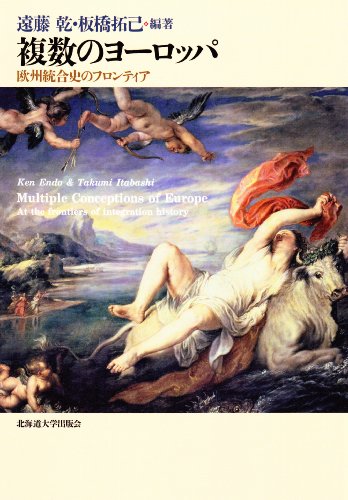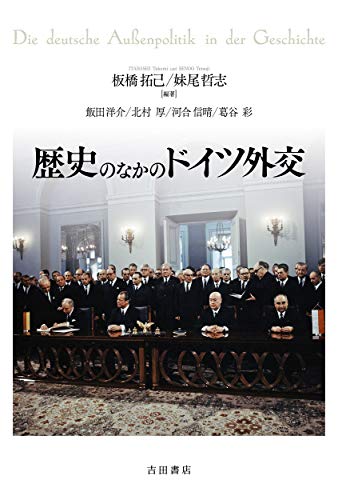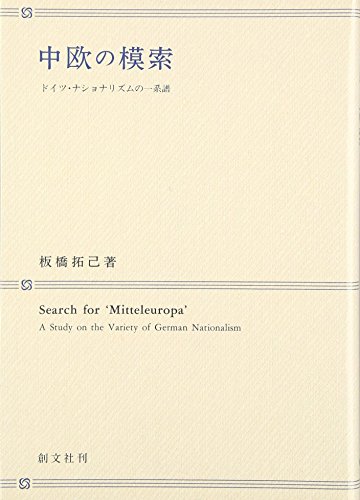- 著者
- 板橋 拓己
- 出版者
- 一般財団法人 日本国際政治学会
- 雑誌
- 国際政治 (ISSN:04542215)
- 巻号頁・発行日
- vol.2020, no.200, pp.200_67-200_83, 2020-03-31 (Released:2020-04-16)
- 参考文献数
- 70
With respect to the international negotiations on the German unification in 1989/1990, not only the massive publication of memoirs by contemporaries, but also the release of historical materials by governments concerned has advanced the elucidation of the event. Existing studies, however, tended to characterize the German unification on October 3, 1990 as “goal” and to assess who contributed to it. On the other hand, more recent studies have shifted the research interest from the “happy end narrative”. In other words, they came to regard German unification not as “goal” or “end” but as “start” or “formative phase” of the post-Cold War European international order.While sharing the view that the German unification process is a period of the formation of the post-Cold War European international order with the latest research, this paper focuses on the issue of NATO (non-)enlargement. Using newly available diplomatic sources, the author tries to reevaluate the role of Hans-Dietrich Genscher, foreign minister of the FRG. What is clear from this approach is the differences of visions within the West German government concerning how to end the Cold War and what kind of new international order should be created, and the impact of these differences on actual international politics.As shown in this paper, it can be said that after the fall of the Berlin Wall, Genscher had consistently envisaged “the ending the Cold War by emphasizing reconciliation with the Soviet Union.” The Bush administration, on the other hand, placed top priority on the survival of NATO. After the Camp David talks in late February, the Bush administration and Helmut Kohl, Chancellor of the FRG, began to seek “the ending the Cold War based on the preeminence of the United States or NATO.”Kohl, who strived for the swift reunification of Germany, put priority on cooperation with the United States on security issues. Nevertheless, Genscher continued to stick to his vision. Due to Kohl’s rebuke and the Bush administration’s pressure, he no longer spoke of the NATO’s non-expansion to the east after April 4, 1990, but repeated arguments for strengthening the CSCE and changing the nature of NATO. Ironically, it was Genscher’s idea that was subsequently effective in convincing the Soviet Union of a unified Germany’s full membership in NATO. Genscher contributed to the end of the Cold War in terms of the “victory of the West” by advocating his vision of the end of the Cold War as a “reconciliation with the East” even after it lost its reality.
8 0 0 0 OA 「制約なき完全な主権」 を求めて ―統一ドイツNATO帰属問題とゲンシャー外交
- 著者
- 板橋 拓己
- 出版者
- 日本政治学会
- 雑誌
- 年報政治学 (ISSN:05494192)
- 巻号頁・発行日
- vol.70, no.1, pp.1_159-1_180, 2019 (Released:2020-06-21)
- 参考文献数
- 27
1989 / 90年のドイツ統一プロセスのなかで、ドイツは自らに課されていた 「戦勝四か国の権利と責任」 を解消し、「制約なき完全な主権」 を獲得することを目指した。そしてその際に越えるべき最も高いハードルは、統一ドイツのNATO帰属をソ連に承認させることであった。本稿は、1990年5月から7月にかけて、いかにして西ドイツがソ連から統一ドイツNATO帰属への合意を取り付け、「完全な主権」 を獲得したかを検証する。その際、近年公刊された西独外務省史料を中心的な史料としつつ、従来の研究では等閑視されがちだったゲンシャー外相の寄与にとりわけ注目する。 ゲンシャー外交の貢献は次の3点に纏められる。第一に、CSCEヘルシンキ最終文書の規定を強調し、ドイツの同盟選択権をソ連に認めさせることに貢献した。第二に、1990年6月の 「ターンベリーのメッセージ」 などを通じて、NATOの性格の変容をソ連にアピールした。そして第三に、ソ連、とりわけシェワルナゼ外相との会談を幾度も重ね、信頼の構築に努めた。こうしたゲンシャー外交がなければ、90年7月の独ソ首脳会談における統一ドイツのNATO帰属合意もなかったであろう。
- 著者
- 板橋 拓己
- 出版者
- 北海道大学大学院法学研究科
- 雑誌
- 北大法学論集 (ISSN:03855953)
- 巻号頁・発行日
- vol.56, no.1, pp.514-468, 2005-05-20
2 0 0 0 複数のヨーロッパ : 欧州統合史のフロンティア
- 著者
- 遠藤乾 板橋拓己編著
- 出版者
- 北海道大学出版会
- 巻号頁・発行日
- 2011
2022年度は、研究取りまとめのための準備を行い、成果公表のための作業を着実に進めることができた。2021年度に実施することができなかった資料収集については、分担者の職務上の都合などにより代替的な手法を検討し、おおむね論文の執筆に問題のないような方法を案出し、材料の収集を行うことができた。これらを踏まえて、日本国内の政治学系の三つの学会において、計7本のペイパーを通じて中間的な成果を報告した.オランダにおける経済専門家と政治過程の関係についての分析においては、政党間の競争が専門性に基づいたプログラムの鑑定を導く過程が分析された。ドイツの保守主義に関する事例においては、1970~80年代のドイツにおける保守運動の再編が検討された。さらに、ヨーロッパ規模比較研究における1970年代の把握についてのペイパーにおいては、同時代の分析が現在の回顧的な視点よりも多様な視角がみられることが検討された。フランスにおける地域主義運動の分析では,バスクを事例としてとりあげ、フランス国内の力学とスペインとの外交の絡み合いが明らかにされた。ヨーロッパ共同体における「人権」争点に関する分析では、人権がヨーロッパの共有する規範となるタイミングとその背景が検討された。さらに、イタリアの事例の分析では、フェミニズムが既存の政治勢力との関係の中で浮上する過程が、ヨーロッパ共同体とドイツにおける男女平等政策についての事例では、平等をめぐる異なった理解の相互作用が検討された。これらの報告には、関連する研究を国内で実施している研究者に討論者として参加していただくことができ、有益な助言を得た。これにより草稿と改訂の方向性が確定したため、2023年度中に本科研の成果を探鉱所として出版するめどが立っている。また、そのための準備会合を期間内にさらに一回設け、具体的な準備作業や手順を確認した。
1 0 0 0 IR ドイツとイスラエルの「和解」 : 道義と権力政治のはざまで
- 著者
- 板橋 拓己
- 出版者
- 成蹊大学アジア太平洋研究センター
- 雑誌
- アジア太平洋研究 (ISSN:09138439)
- 巻号頁・発行日
- no.39, pp.111-127, 2014
Konrad Adenauer (1876-1967), the first chancellor of the Federal Republic of Germany, played the crucial role in achieving the conclusion of the German-Israeli Compensation Treaty (Wiedergutmachungsabkommen) of 10. September 1952. This treaty laid the foundations for "reconciliation" between Israel and the Federal Republic of Germany after the bitterness created as the result of Nazi persecutions of Jews during the Second World War. This paper examines the West German policy toward Israel during the "Adenauer era." It is well known that Adenauer politics can be expressed in two keywords: "Kanzlerdemokratie (chancellor democracy)" and "Westbindung (integration into the West)." But these two words are rarely applied to the German Israelpolitik because of its moral characteristic. This paper shows that the German-Israeli Compensation Treaty of September 1952 actually provides a prime example of Adenauer's "Westbindung"-policy through "Kanzlerdemokratie (unilateral action by the Chancellor without consulting his cabinet or parliamentary party)." Adenauer recognized that the FRG as the legal successor to the German Reich had a duty to accept responsibility for the crimes committed by the German government. Although Adenauer felt deep shame about Nazi persecutions of Jews, he was not simply concerned with German moral debt. A conclusive motive for the completion of the Compensation Treaty was the concern that without such an action Germany's integration into the West would be endangered.
- 著者
- 板橋 拓己
- 出版者
- 一般財団法人 日本国際政治学会
- 雑誌
- 国際政治 (ISSN:04542215)
- 巻号頁・発行日
- vol.2020, no.200, pp.200_67-200_83, 2020
<p>With respect to the international negotiations on the German unification in 1989/1990, not only the massive publication of memoirs by contemporaries, but also the release of historical materials by governments concerned has advanced the elucidation of the event. Existing studies, however, tended to characterize the German unification on October 3, 1990 as "goal" and to assess who contributed to it. On the other hand, more recent studies have shifted the research interest from the "happy end narrative". In other words, they came to regard German unification not as "goal" or "end" but as "start" or "formative phase" of the post-Cold War European international order.</p><p>While sharing the view that the German unification process is a period of the formation of the post-Cold War European international order with the latest research, this paper focuses on the issue of NATO (non-)enlargement. Using newly available diplomatic sources, the author tries to reevaluate the role of Hans-Dietrich Genscher, foreign minister of the FRG. What is clear from this approach is the differences of visions within the West German government concerning how to end the Cold War and what kind of new international order should be created, and the impact of these differences on actual international politics.</p><p>As shown in this paper, it can be said that after the fall of the Berlin Wall, Genscher had consistently envisaged "the ending the Cold War by emphasizing reconciliation with the Soviet Union." The Bush administration, on the other hand, placed top priority on the survival of NATO. After the Camp David talks in late February, the Bush administration and Helmut Kohl, Chancellor of the FRG, began to seek "the ending the Cold War based on the preeminence of the United States or NATO."</p><p>Kohl, who strived for the swift reunification of Germany, put priority on cooperation with the United States on security issues. Nevertheless, Genscher continued to stick to his vision. Due to Kohl's rebuke and the Bush administration's pressure, he no longer spoke of the NATO's non-expansion to the east after April 4, 1990, but repeated arguments for strengthening the CSCE and changing the nature of NATO. Ironically, it was Genscher's idea that was subsequently effective in convincing the Soviet Union of a unified Germany's full membership in NATO. Genscher contributed to the end of the Cold War in terms of the "victory of the West" by advocating his vision of the end of the Cold War as a "reconciliation with the East" even after it lost its reality.</p>
- 著者
- 板橋 拓己
- 出版者
- 日本ドイツ学会 ; 1990-
- 雑誌
- ドイツ研究 = Deutschstudien (ISSN:13441035)
- 巻号頁・発行日
- no.54, pp.18-24, 2020
1 0 0 0 歴史のなかのドイツ外交
- 著者
- 板橋拓己 妹尾哲志編 飯田洋介 [ほか] 著
- 出版者
- 吉田書店
- 巻号頁・発行日
- 2019
1 0 0 0 中欧の模索 : ドイツ・ナショナリズムの一系譜
1 0 0 0 IR 「過去」と政治 : 戦後ドイツの「過去の克服」再考
- 著者
- 板橋 拓己 李 林静
- 出版者
- 成蹊大学法学会
- 雑誌
- 成蹊法学 = The journal of law, political science and humanities (ISSN:03888827)
- 巻号頁・発行日
- no.82, pp.130-118, 2015-06-30
1 0 0 0 OA 「中欧」の理念とドイツ・ナショナリズム(1) -フリードリヒ・ナウマン『中欧論』の研究-
- 著者
- 板橋 拓己
- 出版者
- 北海道大学大学院法学研究科
- 雑誌
- 北大法学論集 (ISSN:03855953)
- 巻号頁・発行日
- vol.55, no.6, pp.474-429, 2005-03-18
- 著者
- 板橋 拓己
- 出版者
- 京都大学地域研究統合情報センター ; 2004-
- 雑誌
- 地域研究 (ISSN:13495038)
- 巻号頁・発行日
- vol.16, no.1, pp.137-154, 2015-11


